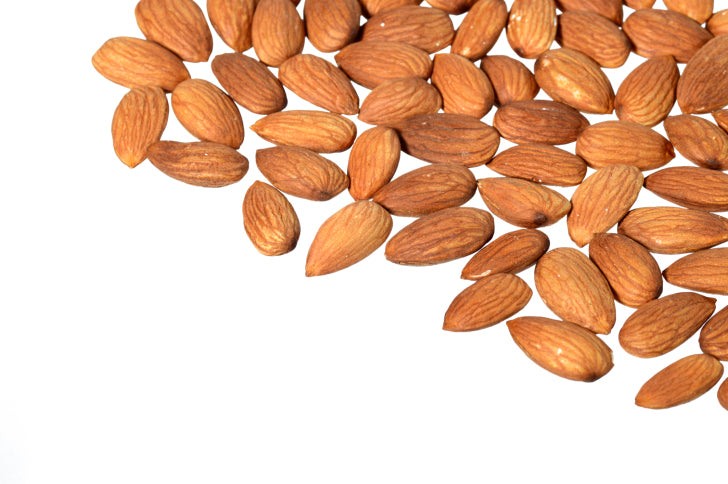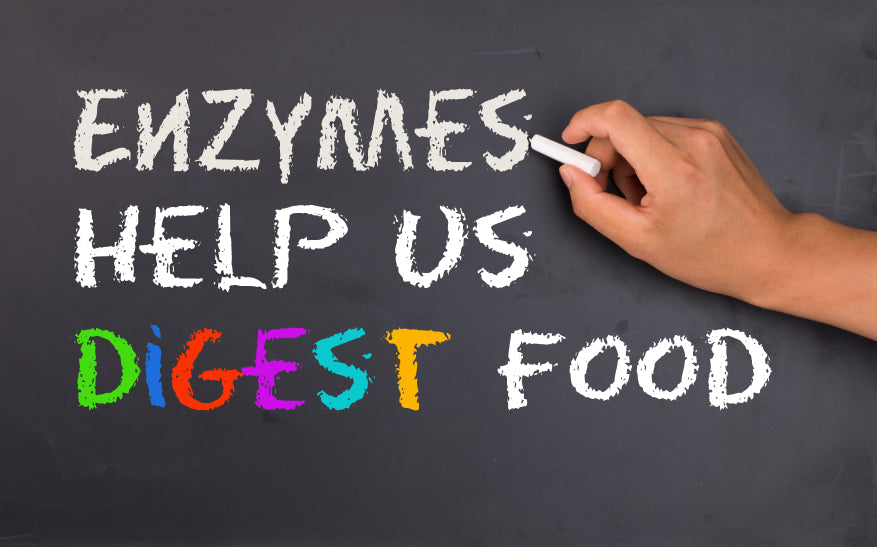We all know the importance of protein in our diet, but as vegan, raw plant-based eaters, we have many more options than we’d think! Proteins are the main building blocks of the body, necessary for the creation of organs, muscles and skin, as well as enzymes, hormones and other molecules that serve important bodily functions. The body breaks down proteins into smaller molecules, called amino acids, which travel through the body to promote cell production and repair. Of the 20 different amino acids that can form a protein, there are nine “essential” amino acids that the body can’t produce on its own, so they must come from food.
The U.S. Centers for Disease Control and Prevention recommends that 10-35% of your daily calories come from protein. The average woman needs 46 grams of protein per day while the average man needs 56 grams. When it comes to protein in your daily nutrition, quality far outweighs quantity. While animal products contain lots of protein, they introduce potential health issues given their high levels of saturated fat and cholesterol (too much of which can lead to diseases such as diabetes and heart disease). The good news is you can get the protein you need from plant-based sources without sacrificing flavor and versatility in your meals. Below are nine super-healthy vegetarian and vegan protein sources—and delicious recipes you can try them in!
-
Lentils (cooked, boiled), 18 grams per 1 cup serving
Lentils are a fiber-rich member of the legume family. They offer a good source of protein, iron, phosphorus, copper, folate and manganese, and contain virtually no fat while being low in cholesterol and sodium. Plus, lentils easily absorb a variety of flavors when combined with other foods.
Try this protein-packed recipe: Lentil Millet Holiday Loaf
-
Chickpeas, 15 grams per 1 cup serving
Chickpeas, or garbanzo beans, are the main ingredient in Middle Eastern and Indian dishes such as hummus. Chickpeas provide a good source of fiber, protein and manganese for energy production. Like other legumes, they can help lower LDL (bad) cholesterol and total cholesterol levels. Women also have the extra benefit because of their saponin content, which act as antioxidants and could lower the risk of breast cancer and protect against osteoporosis. Try this protein-packed recipe: Moroccan Chickpea Stew
-
Beans (black, pinto, white, kidney, lima), 12-16 grams per 1 cup serving
The legume family as a whole is a great source for getting enough protein into your daily diet. Black, pinto, white, kidney and lima beans are also low in saturated fat and calories while providing a great source of dietary fiber. Be sure to avoid canned beans, as the sodium content can be very high not to mention cans can leach toxic chemicals like BPA. When combined with a whole grain, like brown rice, you can obtain all the essential amino acids found in meat and dairy products, without the high fat and cholesterol content. Try this protein-packed recipe: Black Beans and Rice
-
Chia seeds, 4 grams per 2 tablespoon serving
Chia seeds have gained popularity as a superfood in the past few years, showing up in a variety of smoothie, snack and main course recipes. They are tiny black seeds that come from a plant similar to mint, and offer a good source of protein, fiber and calcium, as well as antioxidants and B vitamins. Plus, chia seeds are a whole grain food, non-GMO and gluten-free. Try this protein-packed recipe: Chocolate Mint Chia Milk
-
Almonds, 6 grams per 2 tablespoon serving
Eating almonds as a quick snack is a great way to get protein in your body--as well as riboflavin, magnesium, manganese and Vitamin E. Although almonds are high in fat, it’s the monounsaturated fats that actually have health-promoting benefits such as the reduced risk of heart disease. Try this protein-packed recipe (with almonds in the dressing!): Gado Gado Salad & Dressing with Spiced Cashews
-
Flaxseed, 5 grams per 2 tablespoon serving
Flaxseed originated in Babylon as early as 3,000 B.C. and today is considered “one of the most powerful plant foods on the planet,” according to WebMD. The power behind flaxseed’s potential to reduce the risk of cancer, heart disease, stroke and diabetes is its high content of omega-3s, lignans (with antioxidant properties) and fiber. You can include flax in all kinds of recipes, including health bars, smoothies or even main course meals. Try this protein-packed recipe: Raw Flax Fruit Bars
-
Pumpkin seeds, 5 grams per 2 tablespoon serving
Pumpkin seeds are a good source of antioxidants such as Vitamin E and minerals such as zinc. They are also very low in cholesterol and sodium and in addition to protein, offers good amounts of vitamin K, iron, copper, magnesium, phosphorus and manganese. Although pumpkin recipes are more popular around Halloween time, the sweet, nutty flavor and chewy texture of the seeds make it a tasty snack year-round. Try this protein-packed recipe: Pumpkin Spice Macaroons with Candied Pumpkin Seeds
-
Greens, greens, greens
People don’t tend to think of green vegetables when it comes to protein, but there are quite a few that actually offer a good amount. Peas, for example, give you 3.5 grams in just half a cup. What else? 1 cup of raw broccoli provides 3 grams of protein, 1 cup of raw collard greens gives you 4 grams and 1 cup of raw spinach gives you 2 grams. Not bad for food that already does so much good in one bite!
-
Quinoa (cooked), 8 grams per 1 cup serving
Quinoa is a gluten-free, whole grain seed that is naturally high in fiber and low in fat and also contains good amounts of iron, magnesium and fiber. When combined with legumes, quinoa can provide the nine essential amino acids your body requires to fulfill your protein needs. Try this protein-packed recipe: Quinoa White Bean Veggie Burgers
Protein is vital for life! Your body relies on proteins from food to maintain the health of so many systems in the body for cellular production. When you include plant-based protein in your diet, you’ll be taking care of your health and possibly even preventing the risk of serious illnesses. Plus, proteins take longer to digest than carbohydrates, helping you feel fuller for longer periods and with fewer calories consumed.
If you want to ramp up your diet and experience the best health of your life, today is your chance! For a limited time, get the Hallelujah Diet Get Started Kit today!
Sources:
- Centers for Disease Control and Prevention: www.cdc.gov
- SELF Nutrition Data: www.nutritiondata.self.com
- WebMD: www.webmd.com






